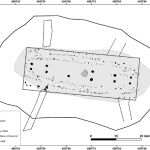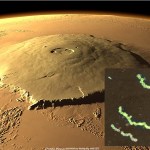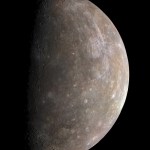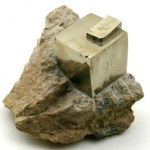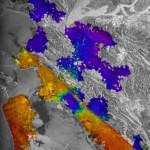geophysics
It's been a busy couple of days with a lot of publicity. Monday morning a paper I've co-authored with my friend, geophysics specialist Andreas Viberg, was published in the on-line version of Archaeological Prospection. For reasons of scientific priority (which I myself like to establish by spilling everything I do onto the blog immediately) I've been sitting on this since April of 2013, so it feels real good to finally blog about it. Here's a brief summary.
There's a huge weird barrow at Aska in Hagebyhöga near Vadstena in Östergötland. It's oval and flat instead of round and domed.
My old…
Speaking of sulfur: This common element turns out to be highly useful for understanding planetary processes – both on Earth and Mars. Two new papers by Dr. Itay Halevy use sulfur chemistry to understand the history of sulfur-loving microbes at the bottom of the ocean and the compounds spewed from Martian volcanoes that may have created brief Martian “springs.”
Sources of sulfur: Olympus Mons on Mars and sulfate-reducing bacteria that live in water on Earth (inset)
On the ocean beds, microorganisms “breathe” sulfur: They take in sulfate – an abundant compound of oxidized sulfur, and use it…
Convective clouds forming over the Amazon in a blanket smoke. Image: Prof. Ilan Koren
Horse latitudes, doldrums, calms of Cancer and Capricorn: These are all synonymous names for the forsaken regions of the oceans that sailors of previous eras cursed because the winds that once pushed their sails die out there for weeks at a time. (One suggested explanation for the name “horse latitudes” is that some had to throw the horses overboard there when the supplies ran out.) On land, these subtropical belts – around 30-35° north and south of the equator – help form the world’s deserts.
These…
"You don't drown by falling in the water; you drown by staying there." -Edwin Louis Cole
Our Solar System is -- at least from our perspective -- the most well-studied system of planets, moons, asteroids and comets in the entire Universe.
Image credit: Olaf Frohn, from earlier in 2012.
And in this system, the closest planet to our Sun, Mercury, was also one of the most poorly understood planets until very recently. Because Mercury is so close to the Sun, it's very difficult to view it under good conditions with a telescope; the risk of ruining your optics by exposing them to direct…
You’ve heard of the carbon cycle, maybe even the nitrogen cycle. But have you given much thought lately to the sulfur cycle? New research in last week’s Science suggests that we should be paying a bit more attention to the way this element moves through the atmosphere, biosphere, oceans and land. Over the last 500 million years, sulfur seems to have played a fairly crucial role in keeping the oxygen levels in the atmosphere at a nice, breathable 20%.
It is microbes and weather that do the work. Microorganisms in the ocean take in sulfur in the form of dissolved sulfate – that is, in a sulfur…
Earthquakes are once again in the news, this time in Mexico. Although it is only the biggest quakes that make international headlines, we might take a minute to contemplate other quakes - the ones you'll never feel. So-called "slow" or "silent" earthquakes slip so softly they don't even show up on regular seismographic equipment.
As the name implies, slow quakes release the energy built up along the fault over hours or even days, as opposed to mere seconds for a fast, shaking quake. So why should we care about what happens in earthquakes that even scientists have barely noticed? For one…
Most of what would ordinarily be blogging time this morning got used up writing a response to a question at the
Physics Stack Exchange. But having put all that effort in over there, I might as well put it to use here, too...
The question comes from a person who did a poster on terminology at the recently concluded American Geophysical Union meeting, offering the following definition of "data":
Values collected as part of a scientific investigation; may be qualified as 'science data'. This includes uncalibrated values (raw data), derived values (calibrated data), and other transformations of…
The question of whether or not I am a geologist is not just an amusing exercise in academic politics. In Washington, as in most U.S. states, geology is a regulated profession; guidelines for who can and cannot call themselves a geologist in a professional context are laid out in the administrative code and enforced by the Geologist Licensing Board.
I am not a geologist, nor will I become one any time soon. To comply with Washington law, I would need to complete coursework in the core subjects of geology (as specified in WAC 308-15-040: structural geology, mineralogy, petrology and sedimentary…
Or, less generally, am I a geologist?
I have a B.S. in geophysics and an M.S. in earth and planetary science with a funky geophysics/geohydrology emphasis. I took some intro physical geology and earth history as a sophomore, but I have never taken formal courses in mineralogy, petrology, structural geology, sedimentology, or stratigraphy. However, I've picked up the basics of these fields from older kids on the street corner and make use of them in my work.
Please assume while you are answering the poll that my work involves using my knowledge of the Earth's history, processes, and…
